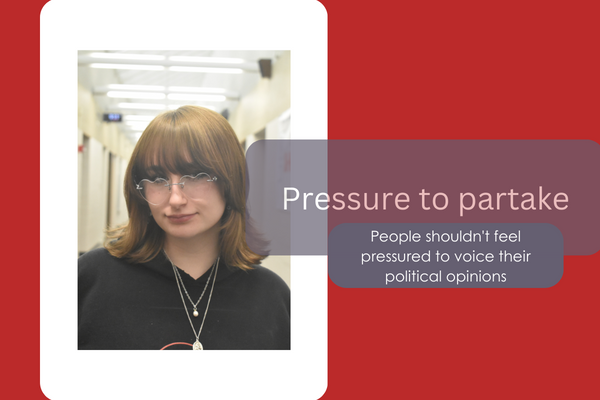With social media being such a prevalent thing in our lives as high school students, there is lots of room for controversy, misinformation and hate to be spread through the form of online political activism.
While social media is a power platform that can incite a positive change, no one should feel pressured to use their platform to spread information about certain political conflicts. Reposting and creating posts online without a thorough dive into the validity of the sources used in the post can lead to a potential spread of misinformation, which can twist the opinions of others to match a false claim.
Being high school students, we likely have little following on our individual platforms. At least, not big enough to make a significant change in any political conflicts. A major change requires a powerful combination of voices, one strong enough to reach the main source of the conflict. Even then, the decision to change still lies in the hands of the aggressor.
Some students find sharing information about politically sensitive topics worth the shot, while others share the information from a place of guilt and pressure from their peers to contribute to a positive change, not out of a desire to partake in activism. The result of the influenced post leads to a potentially forced opinion that might not match their own beliefs while also creating grounds for others to disagree and potentially treat them with disrespect.
Let’s face it, with a world as diverse as ours, it is impossible to not be divided on every topic as we all hold our own beliefs. Whether one chooses to participate in social media activism, it is important to not scrutinize others on their choice to not speak up on a certain political conflict and consider that they have their own opinions and are welcome to use their social media platforms as they choose.



